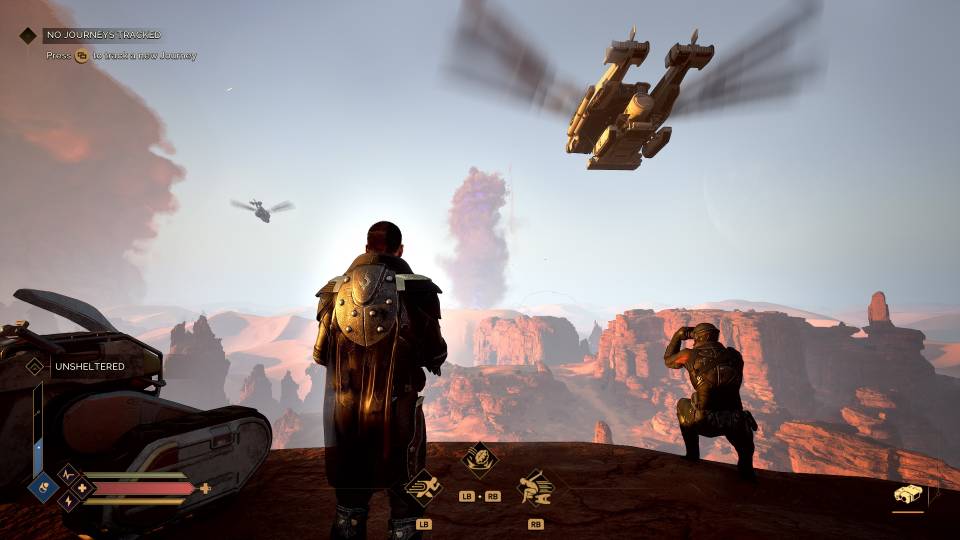This review contains full spoilers for episode six of Loki, now available on Disney+.
It's fitting that as the finale to Loki Season 2 begins, the Marvel Studios logo is revealed in reverse. Watching this established universe revert – or "unspool" – back to the four-color parchment that gave the Marvel Cinematic Universe endless stories to adapt is a poetic note to begin what is inarguably the most contemplative and consequential chapter in this Disney+ series yet, not to mention in the MCU since Avengers: Endgame.
Going back to the beginning to undo the damage done in prior episodes is the chief function of "Glorious Purpose." Loki's (Tom Hiddleston) new powers make popping into crucial moments from the past an easy gimmick for the series to exploit. And, if these last two episodes of Loki had shared the same daft flavor most Marvel projects compulsively fall back on just when things get interesting and/or dramatic – like, say, the breaking of an entire universe – it would have felt like one. Instead, this season (series?) finale, written by Eric Martin and directed by Justin Benson & Aaron Moorhead, approaches the material with a sincerity and (gulp) finality that this franchise hasn't shown in years.
Even He Who Remains (Jonathan Majors) comes back this week in a more subdued mood. The Season 1 finale saw Sylvie (Sophia Di Martino) slay the conquering Kang variant, which sent the Sacred Timeline unspooling into infinite branches. Before she shoved her magic blade through his purple tunic, He waxed cosmic with the jittery energy of a goof-off philosophy major hopped up on Red Bull. When Loki intervenes to thwart Sylvie's fatal blow, only to trigger a loop where her determination to kill is pitted against his own to stop her, He tosses out the pretense, freezes Sylvie in stasis, and gives Loki the straight dope on the actual stakes of his demise. Once the conversation ends, Loki discovers that pursuing one's purpose is more of a burden than anticipated.
But that's jumping ahead. There's more to unpack in "Glorious Purpose" before discussing Loki's big life- and existence-altering decision. After last week's thrilling climax, when Loki returned minutes before Victor Timely (Majors) ran out to fix the Temporal Loop and was annihilated for his trouble, it seemed clear that Loki the Show was positioning its former God of Mischief to change tack and become the God of Stories at last. It's a suitable change for a character who has been in a state of spiritual upheaval since he swiped the Tesseract in Endgame and wound up a prisoner of the Time Variance Authority. It's almost as though this mature Loki Laufeyson is adopting the credo of another alliterative Marvel character; he's got great power, sure, but what about the responsibility that comes with it?
Fixing the Sacred Timeline is on the agenda. The time-slipping powers that have given Loki (and Hiddleston's stringy wig) a workout since the season began – in an interestingly bendy twist, they're a gift from He Who Remains – allow him a chance to rewrite the script and save countless lives in the doing. It's also a chance to save Timely, undo the catastrophic events of last week, and, it turns out, reshape the entire season. Set to funky music from composer Natalie Holt (who absolutely kills it this week), we're treated to a montage of Loki popping in and out of earlier season moments in an increasingly desperate bid to fix the multiverse. Magic isn't enough on its own. What else might Loki need? Ouroboros (Ke Huy Quan) and his knowledge of physics are a good place to start. Fortunately, Loki isn't just a god; he's a quick study.
This leads to one of the better jokes of the season, a caption that reads "Centuries Later," which implies Loki just spent untold generations learning all there is to know about science. (It's a playful riff on "When did you become an expert in thermonuclear astrophysics?" from The Avengers, although Tony Stark still holds the record in terms of vast knowledge acquired over time.) Imbued with new super-smarts, Hiddleston gets a chance to break free from the flummoxed rut he's been in since… well, since he laid siege on New York City all those years ago. His motor-mouthed geek-speak, spat out as Loki runs theoretical rings around Timely, O.B., Sylvie, Hunter B-15 (Wunmi Mosaku), poor Casey (Eugene Cordero) and Mobius (Owen Wilson), puts some comedic pep in Loki's – and Hiddleston's – step.
Unsurprisingly, rewriting the story is harder than he anticipates. As Timely puts it, accounting for the endless expansion of dimensional branches is like dividing by zero – it can't be done. Now, there was never any real way for Loki to put the kibosh on the multiverse in this finale; we know there are Kang variants out there ready to put a hurt on the MCU, and there's at least one secret war on the way that only Earth's Mightiest Heroes – whoever they are at this point – can stop. It's one of the drawbacks of indulging the ceaseless drip feed of information concerning these superhero cinematic universes; we know how the next two phases in Marvel's grand scheme will likely shake out despite the studio's apparent turbulence behind the scenes. This familiarity drains the element of surprise from ambitious endeavors like Loki.
That's why it's heartening that the concluding two episodes of this season have been so reflective. The outcome of the multiverse isn't in question, but the fate of the TVA and its resident Asgardain are, especially since there seems to be no indication that a Loki Season 3 is in the offing. So when Loki's last-ditch save goes kablooey, there's only one place for him and the series to go next: back to Season 1, Episode 1 – also titled "Glorious Purpose," functionally bringing this series full circle – where Loki still wears that mad Time Twister collar, and Mobius asks tough questions of the TVA's latest variant paradox. Their conversation provides a surprisingly effective contrast to the existentially weighty discourse with He Who Remains; while Loki and He contemplate doom, Mobius imparts words of encouragement and the potential for change.
Season 2 has been a story of starts, stops, and mulligans, not just in terms of story but character. Loki's dauntless fight to fix the timeline, which fails again and again and again, reveals so much about his growth. Loki tried to be a good ally to the TVA and Sylvie, even when their goals ran perpendicular to his. He made a go of being anything but a megalomaniacal upstart god who took what he felt was rightfully his. It's interesting; for a guy who's spent the better part of two seasons declaring his disinterest in a throne, he ultimately finds himself with one – a gilded chair to finally rest on, even as his new role in the MCU is just beginning.
Reflecting on all He Who Remains has revealed, Loki quotes T.S. Eliot: "We die with the dying, and we're born with the dead." This line, paraphrased from Eliot's "Little Gidding," captures our perception of history and its contribution to spiritual transformation. Loki, if nothing else, is a mythological character borne from change. Once a God of Mischief and now something new, Loki takes a leap into the unknown and imbues the multiverse with verdant light. He's flipped the Temporal Loom on its side, appropriate given his chaotic-neutral tendencies, which give the multiverse's fraying branches the aspect of a tree. It's obvious shorthand for growth, maybe, but it's also a grandiose symbol representing what Loki has become. More than a Frost Giant, an Asgardian, a villain, a brother, or a god, Loki is the new steward of the Marvel saga, not pruning branches but allowing them to grow. A new Yggdrasil for all time, always.







